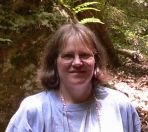
From Bruce Mau Design via Mike Sansone:
1. Allow events to change you. You have to be willing to grow. Growth is different from something that happens to you. You produce it. You live it. The prerequisites for growth: the openness to experience events and the willingness to be changed by them.
2. Forget about good. Good is a known quantity. Good is what we all agree on. Growth is not necessarily good. Growth is an exploration of unlit recesses that may or may not yield to our research. As long as you stick to good you'll never have real growth.
3. Process is more important than outcome. When the outcome drives the process we will only ever go to where we've already been. If process drives outcome we may not know where we’re going, but we will know we want to be there.
4. Love your experiments (as you would an ugly child). Joy is the engine of growth. Exploit the liberty in casting your work as beautiful experiments, iterations, attempts, trials, and errors. Take the long view and allow yourself the fun of failure every day.
5. Go deep. The deeper you go the more likely you will discover something of value.
6. Capture accidents. The wrong answer is the right answer in search of a different question. Collect wrong answers as part of the process. Ask different questions.
7. Study. A studio is a place of study. Use the necessity of production as an excuse to study. Everyone will benefit.
8. Drift. Allow yourself to wander aimlessly. Explore adjacencies. Lack judgment. Postpone criticism.
9. Begin anywhere. John Cage tells us that not knowing where to begin is a common form of paralysis. His advice: begin anywhere.
10. Everyone is a leader. Growth happens. Whenever it does, allow it to emerge. Learn to follow when it makes sense. Let anyone lead.
11. Harvest ideas. Edit applications. Ideas need a dynamic, fluid, generous environment to sustain life. Applications, on the other hand, benefit from critical rigor. Produce a high ratio of ideas to applications.
12. Keep moving. The market and its operations have a tendency to reinforce success. Resist it. Allow failure and migration to be part of your practice.
13. Slow down. Desynchronize from standard time frames and surprising opportunities may present themselves.
14. Don’t be cool. Cool is conservative fear dressed in black. Free yourself from limits of this sort.
15. Ask stupid questions. Growth is fueled by desire and innocence. Assess the answer, not the question. Imagine learning throughout your life at the rate of an infant.
16. Collaborate. The space between people working together is filled with conflict, friction, strife, exhilaration, delight, and vast creative potential.
17. ____________________. Intentionally left blank. Allow space for the ideas you haven’t had yet, and for the ideas of others.
18. Stay up late. Strange things happen when you’ve gone too far, been up too long, worked too hard, and you're separated from the rest of the world.
19. Work the metaphor. Every object has the capacity to stand for something other than what is apparent. Work on what it stands for.
20. Be careful to take risks. Time is genetic. Today is the child of yesterday and the parent of tomorrow. The work you produce today will create your future.
21. Repeat yourself. If you like it, do it again. If you don’t like it, do it again.
22. Make your own tools. Hybridize your tools in order to build unique things. Even simple tools that are your own can yield entirely new avenues of exploration. Remember, tools amplify our capacities, so even a small tool can make a big difference.
There's more. Go check it out.






















